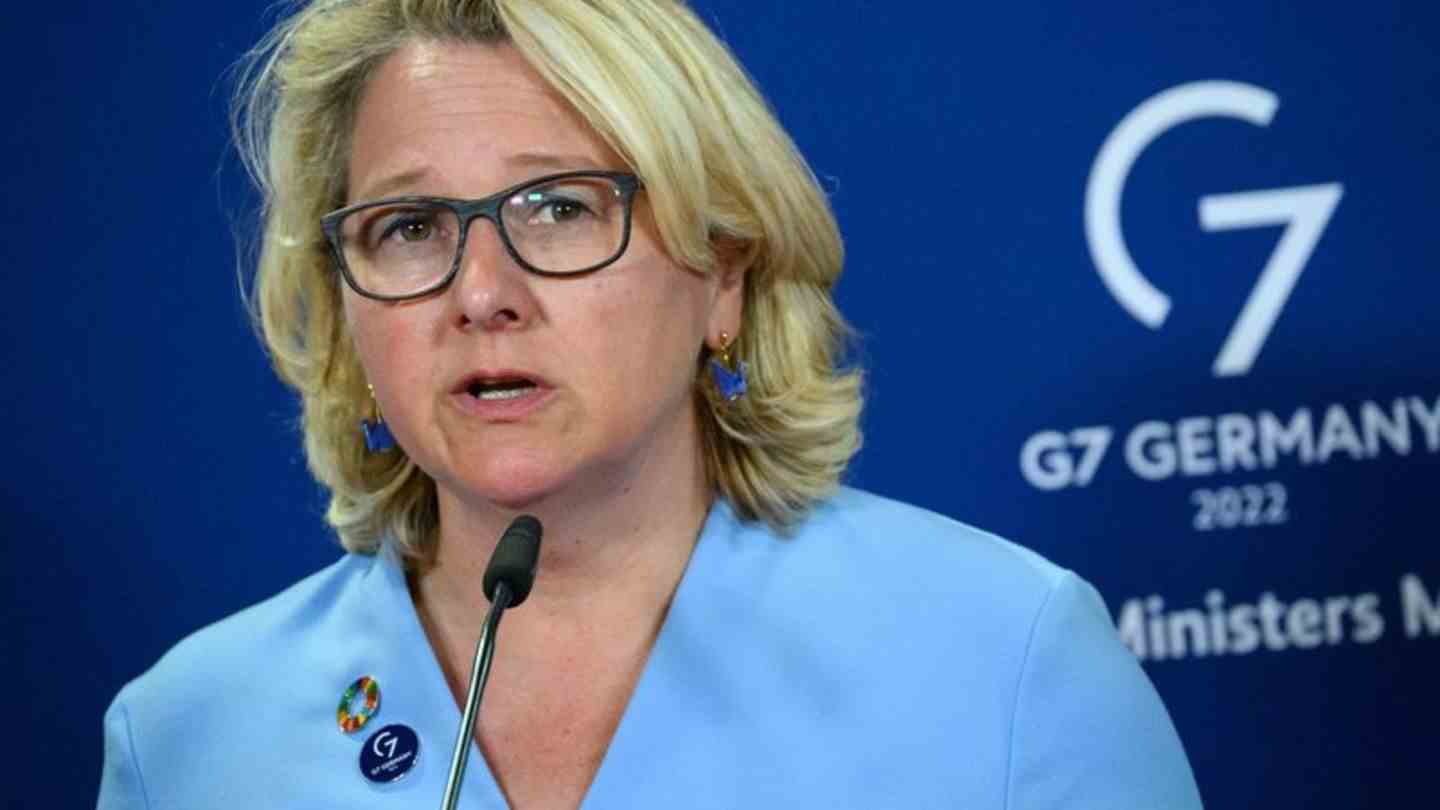Ukraine war
G7 want to counteract the impending supply crisis
Svenja Schulze: “The worst famine since the Second World War is imminent.” Photo: Bernd von Jutrczenka/dpa
© dpa-infocom GmbH
Millions of tons of grain are stuck in Ukraine. Famine could result from the consequences of the Russian war of aggression – not only in the region. The industrial nations are working on a solution.
With an alliance for global food security, the leading Western industrial nations (G7) want to counteract a serious supply crisis as a result of the Ukraine war.
The project, launched by the G7 development ministers in Berlin on Thursday, is intended to ensure additional money and close coordination of food security measures. “As a result of Russia’s war of aggression in Ukraine, the global food situation has worsened dramatically. The worst famine since the Second World War is imminent,” said Development Minister Svenja Schulze (SPD), who initiated the project together with World Bank President David Malpass.
Wheat from Ukraine is blocked
Russia is blocking shipments of wheat from Ukraine by ship, on which many countries in Africa and Asia depend. The food alliance led by Western countries is also seen as a reaction to a diplomatic vacuum. Actually, the Food and Agriculture Organization of the United Nations (FAO) has a global mandate for food and agriculture, but it is led by a representative of China and so far has not developed any effective or even visible engagement. The veto states Russia and China have considerable influence in UN organizations.
According to the Ministry of Development, further partners are now to be won in order to find an answer to the food crisis. Donor rounds are expected to be organized to provide financial aid. There are several problems with the grain supply. Rising prices are already causing problems for the poorest. A prolonged war also poses problems with the available quantities of grain, especially since drought can reduce harvest quantities in some parts of the world. Famine can quickly pose a threat to political stability.
Schulz called for action to be taken quickly, decisively and together, and to ensure that the grain reached the starving quickly. “But we also want to make sure that the structures are changed in a sustainable way so that developing countries can be more self-sufficient in the future instead of being dependent on the world market,” she explained.
In addition to the World Bank, the G7 countries and the EU Commission, supporters include the UN Global Crisis Response Group, Norway, Denmark, the African Union, the UN World Food Program (WFP) and the International Fund for Agricultural Development (IFAD). The alliance is also open to the private sector and civil society organizations.
At the beginning of the year, Germany took over the one-year presidency of the G7 from Great Britain. The group includes Germany, France, Great Britain, Italy, Japan, Canada and the USA. The European Union also takes part in the meetings of the G7.

